In August 2009 James Murdoch delivered the MacTaggart Lecture . It is the keynote address at the Edinburgh International Television Festival, and the annual corroboree of the leading players in Britain’s television world.
James Murdoch was at the top of his game. He was News Corp’s chairman and chief executive in Europe and Asia, in charge of the company’s British newspapers and its interests in the satellite broadcaster BSkyB.
He arrived on the platform to thunderous applause and delivered a speech scathing of the industry regulator Ofcom, ”unaccountable institutions” like the BBC and the ”authoritarianism” of government media agencies.
He ended with a flourish: ”The only reliable, durable, and perpetual guarantor of independence is profit.”
If all of this was not breathtaking enough, his speech was called ”The absence of trust”. In other words, ”the right path,” according to James, ”is all about trusting and empowering consumers”. The state should get its nose out of his business and the BBC should leave commercial activities to the market.
Intriguingly, the guest speaker at this year’s MacTaggart Lecture is James’s sister Elisabeth Murdoch. By next August the Brits will have had the Murdochs up to pussy’s bow.
The context of that swaggering lecture in 2009 is fascinating. The general election was held eight months later and a lot happened in the interim. In March 2009 the Tory opposition leader David Cameron (now the PM) said the BBC licence fee, which is the corporation’s main source of revenue, should be frozen. The opposition’s culture and media spokesman, Jeremy Hunt (a former PR man), made the same call.
Just after James’s lecture in Edinburgh, Hunt wrote an article in Murdoch’s Sun attacking the BBC and saying it should curtail its commercial activities. Between the lecture and the publication of the article Hunt had flown to New York where he met News Corp retainers.
Just before the lecture, Murdoch had complained that Ofcom was meddling in his business – in June 2009 the regulator had announced BSkyB should sell some of its channels. Less than a fortnight later Cameron declared that if he was elected to government he would scrap Ofcom.
Thirteen days after the lecture, Cameron and James Murdoch had a drink at a private club in Mount Street, called George. Over a cocktail James said The Sun would back Cameron and the Tories at the coming election.
It was revealed before the Leveson inquiry into the media on Tuesday that Jeremy Hunt, the Media and Culture Secretary, and his office, instead of acting in a quasi-judicial capacity in determining the merits of News’s bid for the balance of the BSkyB shares, was actively backing the bid.
How the world has turned upside down. James has been drummed out of London with his tail between his legs, the BSkyB bid is in tatters, and the idea of ”soft touch” regulation of the media is a distant fantasy. In fact, out of all this will come a statutory scheme with powers to enforce codes of conduct for newspapers and internet media.
The remarkable thing is that James Murdoch on Tuesday and his father Rupert on Wednesday were still clinging to their tattered scripts in evidence before Lord Justice Leveson.
”I want to put it to bed once and for all that I used the influence of The Sun to get favourable political treatment,” insisted Rupert with a straight face.
James said he would never make ”such a crass calculation” about what his newspapers could have achieved in relation to the BSkyB bid in the run-up to the election. ”It would never occur to me.”
The strangled guffaws could be heard around the world, right back to little old Oz, where almost on a daily basis the Murdoch papers shove their proprietor’s commercial interests down our throats.
The relentless attacks on the national broadband network in News Ltd’s national daily The Australian and other of its capital city tabloids is not without an eye on protecting the patch of Foxtel, SkyNews and Fox Sports.
The assaults on the Finkelstein findings and on the recommendation for a News Media Council are certainly something News Ltd has shared with other media organisations, including this one, but News has very much been to the forefront on that political campaign.
It is notable that Tony Abbott’s Coalition is in step with News Ltd in its opposition to a statutory media regulator, a privacy law and the broadband network in its current proposed form.
I think we’re entitled to know what backroom discussions, private drink sessions, winks or nods have taken place, if any. As Paul Keating once observed of Rupert Murdoch: ”You can do a deal with him without ever saying a deal is done.”
He doesn’t have to ask prime ministers for favours. They understand implicitly what’s required.
The wondrous thing about Leveson’s hearings is that for the first time since Murdoch went to Britain in 1968 to buy the News of the World, he has been put on the stand and pressed to account for his role and influence with successive British governments.
We have seen over the past 12 months or so evidence of News International’s ever-spreading stain on British institutions and democracy – on the police, on the public service, on politics and on the media itself.
In Britain, at least, the Murdoch ascendancy is over. But the Leveson hearing is not over.
Rupert Murdoch returned last night our time. He thought the impertinent questions would be out of the way by Wednesday, when outside the inquiry room during a break he was heard to say to one of his consiglieri: ”Let’s get him to get this f—ing thing over with today.”
Actually, this might run as long as The Mousetrap on the West End.
First published: Read more: http://www.smh.com.au/opinion/politics/winds-turn-against-murdoch-influence-20120426-1xnv1.html#ixzz1tBoDUC7k
• Guardian Saturday: Murdoch and the Cameron entourage: a shameful tale laid out for all to see
• Nieman Journalism Lab: The aggregators of today will be the original reporters of tomorrow





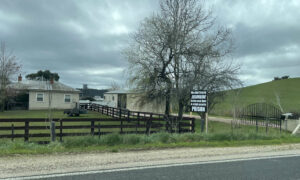



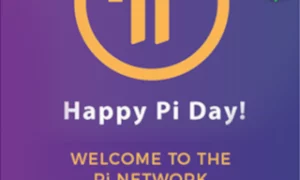



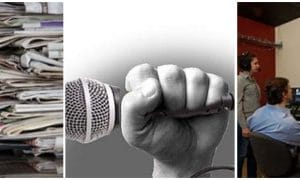







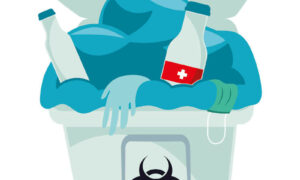

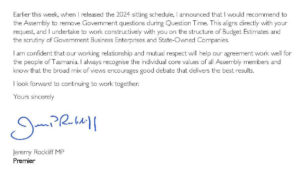

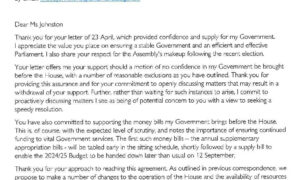

john hayward
April 26, 2012 at 15:32
Tasmania is so deadshit that Rupert’s Mercury isn’t the most reactionary rag on offer.
All the same, Rupert remains as toxic as he was portrayed in Dennis Potter’s TV drama “Cold Lazarus” .
John Hayward
Daniel Ferguson
April 26, 2012 at 18:03
As long a those involved with establishing a statutory scheme to establish a code of ethics for the media are not Murdoch affiliates or ‘appointees’ and truly independent, it might be a good thing. It’s what we need here in Oz.
bazzabee
April 26, 2012 at 20:05
I’m currently in the UK and found the two days of Rupert Murdoch’s evidence fascinating. Never more so than when the dirty old digger played the I’m also a victim, in all this, card.
Wow, I bet Murdoch really tugged at the heart strings of the hundreds of sacked News of The World staff. How good it must have felt to learn the big boss was on their side, “I panicked”. He had been lied to, hoodwinked and kept in the dark like an aging mushroom. Although I very much doubt he is worried about the bank foreclosing on the mortgage or car loan.
What a ***king old hypocrite Murdoch really is.
Regardless of what Murdoch has said over the past two days and even if it were the case that he was lied to kept in the dark and hoodwinked he is finally responsible for everything that went on at the papers and TV channels. Rupert Murdoch is after all the Chairman of News International Ltd and he is still raking in the millions, he hasn’t been sacked and he hasn’t resigned as an act of contrition.
And while it may be true that Murdoch gave no direct orders to his editors they were working to him; each and everyone of them knew exactly what was expected of them. How? Once a year Murdoch would host a get-together with ‘his editors’ and senior managers. At these gatherings Murdoch would wine and dine and afterwards tangentially discuss his feelings, beliefs and ideas.
Rupert Murdoch’s editors/mangers did not need daily directions to know what the big boss wanted his wishes and needs were served up to them as dessert. A dessert to be digested and slowly regurgitated across editorials and as News Ltd policy until the following year when the happy band met again.
Does anyone seriously think that what had worked so well for so long would not still be happening if Murdoch and his senior editors and managers had not been caught red handed?
Sorry silly me, it is still happening just look at the ‘massive’ coverage and attack editorials in the Mercury. Look at the ongoing we love Tony Abbott campaign being run by the Murdoch’s Aussie flagship The Australian if you think Rupert Murdoch has changed his practices.
bazzabee
April 27, 2012 at 01:59
#4 When it comes to the Mercury I remember what former Tasmanian Democrat Senator Norm Sanders said. In a previous life Norm designed and manufactured wood burning heaters. With each new heater came a set of instructions one of which stated that the The Mercury was useful as an initial source of fuel/heat; it was an even better source of fuel/heat if it had not been read according to Norm’s instructions. Norm was right more than thirty years ago and some, including me, still think he’s right.
Wining Pom
April 27, 2012 at 12:59
With regard to Murdoch not knowing what goes on and not telling anyone to do bad things, I was once privileged to be present when an Evening Standard (London) journo was introduced to the Tass correspondent of Malta. (The central agency for collection and distribution of internal and international news for all Soviet newspapers, radio and television stations.) He immediately got stuck into him about freedom of press etc and was so beautifully out manoeuvred that it flawed me. The Tass guy got the London journo to admit that in England there was the Official Secrets Act where people could be jailed for reporting things and in the USSR, there was nothing of the sort and nobody told him what he could write.
Now, I imagine Murdoch does not have a written act to outline what can be written or not and I’m sure he doesn’t tell them what to write, but all Soviet citizens knew exactly what was accepted and what caused them to be punished. I’m equally sure that all News Ltd. employees know what their role is and to go outside it is to cause wrath higher up.
Wining Pom
April 27, 2012 at 15:29
What I should have said was that he admitted the USSR had free press and the UK didn’t.
Bob Kendra
April 28, 2012 at 03:21
If anything can possibly be done about Murdoch’s power in Australia, moves must be made soon. The Government’s only outspoken critic of Murdoch is Stephen Conroy. Examples of blatant bias and undue influence must be forwarded while there is any chance of affecting the Murdoch/Tory steamroller.
For, sure as climate change will continue to be denied, Tony Abbott will be carried on the shoulders of Murdoch’s editors all the way to the lodge. And that will be the bitter end of any media scrutiny or remaining diversity (except online) in Australia. That is the cabal of influence over the unengaged voter or “common man” that Murdoch cultivates.
Then, Murdoch wants to commercialise the ABC and make us pay for internet news as well.
If it is possible to doubt Murdoch’s foul influence here, read the Quarterly Essay, ‘Bad News – Murdoch’s Australian and the Shaping of the Nation’ by Robert Manne. To order online: http://www.quarterlyessay.com